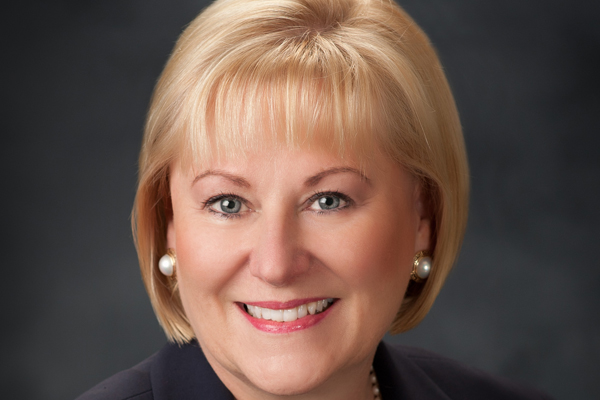Keenan: Groups must be ‘champions' of their professions
Keenan: Groups must be ‘champions' of their professions
- May 23, 2019 |
-
 CEO Update
CEO Update

2019 AWARD HONOREE: PROFESSIONAL SOCIETY CEO OF THE YEAR
Endocrine Society CEO says working in associations gives people ability to enact industry change in ways that few other roles can
 Keenan
Keenan
CEO Update: How has the Endocrine Society changed in your five years here?
Barbara Byrd Keenan: We have a passion for advancing the profession in a very proactive and global way. We have repositioned our strategic plan to be externally focused to say we're going to unite, lead and grow the profession, (and) not take over the profession. So we see ourselves as a true catalyst of pulling together the myriad organizations within endocrinology so that we can move the entire field forward.
CU: Has your own role as CEO changed in your time here?
BBK: It's been pretty consistent. Where I do think the leadership has been particularly appreciative was my support for our new strategic plan: the process, the design, the group of people who got invited outside of the board to be able to contribute.
CU: What do you see as the role of a professional society in advancing the profession?
BBK: I think they need to be in the vanguard because if they don't, then who's going to do it? … The profession needs to be responsible for itself and be its appropriate champion. And I think that's why those of us who've done association management for as long as we have stay in it and still like it.
If I worked in a university, I can change the environment, the culture and direction there, but that's one place. If I work in the Endocrine Society, I can change the overall direction, culture and effectiveness of not only the organization but the field the society represents. So that kind of transformational ability is what drives me and drives everybody else here.
CU: As a group representing health care professionals, how does the Endocrine Society communicate health issues to the public?
BBK: There are two primary avenues we have employed. One would be what I call the "non-traditional traditional." The traditional is our media and communications efforts, but I think we take a non-traditional approach to that. We are heavily invested in social media … but one of the things that we have really striven to do is help translate the science and research that our members are conducting into accessible content for not only reporters, but the public.
One of our exemplary efforts is what we do at every annual meeting, where (communications) staff put together a briefing book for reporters—maybe the top 50 abstracts—and they really break it down into why this science is important.
The second (avenue) is our Hormone Health Network, which is our patient information portal. That is very accessible information and we're hoping to do even more with that. It gets the most traffic of both of our websites.
CU: What characteristics does a professional society CEO need for success?
BBK: If we look at the more quantifiable skills, the ability to think strategically, to articulate a vision and get people excited about the direction … and believing it could happen. I think that's really important because you're moving a profession forward. You're taking them someplace they haven't been before. You're evolving and changing and getting people to stay current and even think ahead of the curve without getting either intimidated or frightened by it.
(It's) imbuing that sense of "we can do this" while not underestimating the challenges or difficulty, but giving them that sense of confidence: "You own this profession. You can make this path forward work."
CU: Would advice do you have for a new CEO just coming into a professional society?
BBK: Immerse yourself in the knowledge of the organization by going out and speaking to members. Listen and learn.
Classic advice is "make your mark in 120 days, the first four months." Don't listen to people's classic advice. Trust yourself and trust your own judgment about how fast the organization can go.
Identify early on champions that you see as make-it-happen people. They may not be the elected leadership. They may be other people.
Get to know the staff. However large or small your staff is going to be, whatever kind of state they're in, turnover at the top always creates some churn. That's just a natural evolution of things. Sometimes you absolutely need to change the set, other times you don't. And everybody needs to be comfortable with either a change in direction or a change of pace. I probably brought a change of pace (to the Endocrine Society).
Career highlights
Longtime leader: Keenan led three groups before joining the Endocrine Society in 2014: Institute for Food Technologists, Community Associations Institute and Hospitality Financial and Technology Professionals.
Proudest achievement: Finding the ability to lead groups representing radically different industries, from hospitality to community associations to research and medicine. As CEO, Keenan said she learned to listen to members about what issues were facing their industries and then help develop strategies to chart a way forward.
Community Connections: Keenan was named to the inaugural class of ASAE Fellows in 1986. She is a recipient of ASAE's Key Award for association leadership and commitment to voluntary membership organizations.
To attend the Association Leadership Awards in Washington, D.C., on Oct. 3, 2019, visit www.ceoupdate.com/awards
